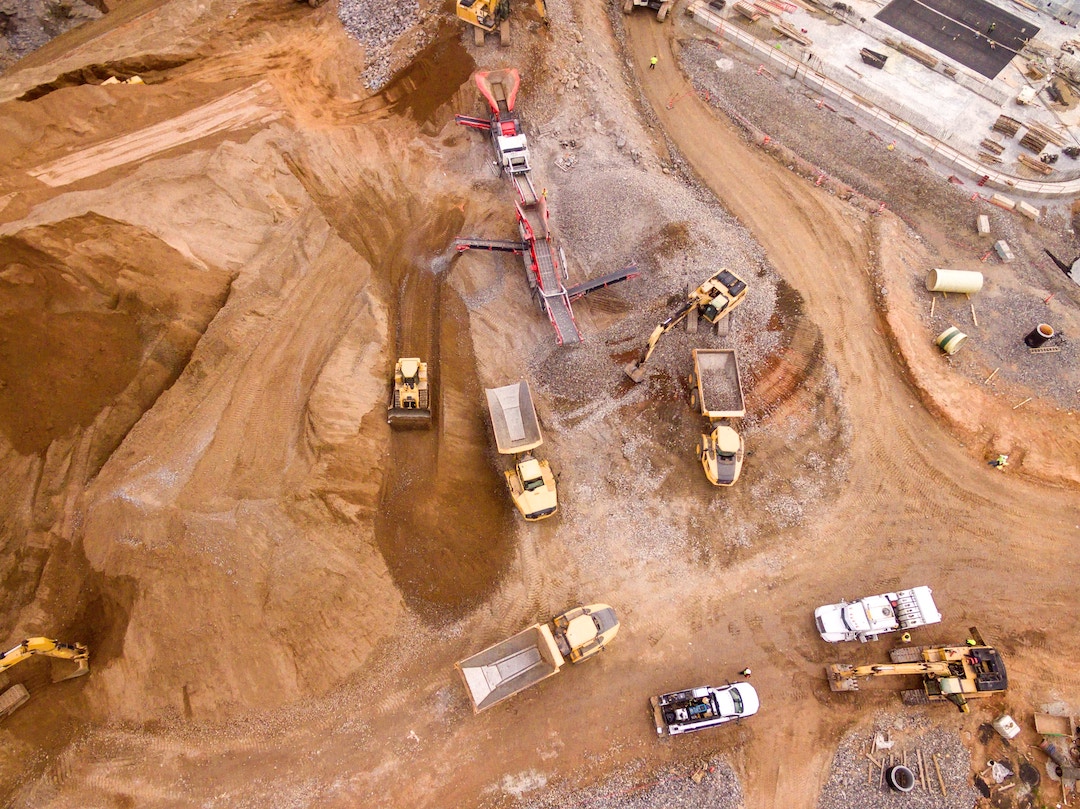Artificial Intelligence: you either love it or you hate it, but either way you can’t ignore it.
As a technology, it is primed full of both opportunities (and threats) for the mining industry and full of expectations (perhaps even inflated expectations) – a point that the great teams at Gartner Research highlight.
Global Data’s October 2023 report “Mining: Filings Trends & Signals Q3 2023” highlights that in the third quarter of 2023, there was a 60% reduction in the mention of Artificial Intelligence in the mining industry’s company filings compared to the previous quarter. So where does this leave the mining industry and AI-based technologies?

What is Generative AI (in plain English)?
You will probably have already heard of the key applications, such as ChatGPT and Midjourney. These apps are specifically designed to generate original text and image-based content solely based on the text inputs that you use to prompt the applications. If you have used these applications, already, congratulations, you are now officially a prompt engineer. These are just the tip of a very deep AI-based iceberg that can produce audio, code, simulations, videos, and so much more. These all have the potential to be game-changing, generating productivity benefits, but also highly disruptive for knowledge workers. As the technology continues to develop and improve, applications have the potential to significantly alter the way you communicate both internally and externally within your mining business.

How do AI Systems work in practice (in plain English)?
AI systems learn by working with the data that they analyse. To do so they need data – and lots of it. This data is used to pick up on regular patterns that appear. These patterns are then stored and used to train the software to more effectively evaluate a set of potential matches from the next set of data. This could be images, text or other digital files.
Take, for example, the reCAPTCHA images Google so often uses as a security mechanism to defeat automated bots online. These are those small tests where you have to identify street signs, cars, or bicycles in a series of pictures before you can progress. Each time we choose these objects correctly, it’s not just a security check – we’re actually helping to train Google’s AI.
Google is (quietly) open about how it wants its reCapture to help improve Google Maps. You can imagine these images could also be used to help train self-driving cars to recognise crosswalks, traffic signs, or bicycles. Every time we click on an image with a stop sign, for example, we provide a correct example for the AI to learn from. The AI observes the choices of multiple images that millions of people make when identifying stop signs. The AI starts to notice patterns – the octagonal shape, the red colour, the white letters – that define a stop sign. Each reCAPTCHA we solve is like a mini lesson for the AI. With enough training with these reCAPTCHA tests, the AI gets better at spotting stop signs, which will be crucial for the accuracy and safety of AI-driven cars.
Using similar methodologies, AI-based algorithms have been created for mining exploration, specifically to locate mineral deposits in undeveloped, greenfield locations. Additionally, drones are being used for autonomous drilling, effectively reducing costs. For larger and more intricate exploration sites, 3D mapping technology has been developed to provide detailed visual representation and mapping.
At an operational and financial level, at SpendConsole, for over three years, we have trained our AI model to work with our Optical Character Recognition (OCR) software to recognise millions of different supplier invoices, in different formats. We have meticulously trained our AI model to identify the likely location of key data required by internal ERP systems. In fact, our AI-powered OCR now automatically picks up over 98% of data from submitted supplier invoices, with our models having the flexibility to allow our clients to train the models further, which offers significant time saving and productivity benefits to our mining customers.

Expectations versus the reality of AI
Sadly, the expectations of AI are far higher than their reality. The media and popular culture so often portray AI as a technology that is capable of human-like understanding and decision-making that can even surpass human intelligence. But in reality, AI has limitations. AI systems are highly specialised and perform well when there are specific tasks for which they have been trained. They do, however, lack the general understanding and adaptability of humans. They can’t comprehend context or information outside of the set of data for which they were trained. This means their learning processes require extensive data and human input for ongoing training and fine-tuning.
So given that Generative AI is at the peak of inflated expectations, for those in the mining industry considering AI, it is critical to ensure that the reality matches your expectations. It is only when you undertake your due diligence that you may discover upon closer examination that many AI-powered solutions turn out to be underdeveloped, lacking in the promised features, or at worse non-existent.
This situation is further compounded by the complex nature of AI technology, which can be difficult for non-experts to evaluate. Without a deep understanding of AI and Machine Learning, it can be challenging to differentiate between genuine innovation and overhyped vapourware.
At SpendConsole, we’ve been working hard with AI for years, prior to the technology becoming a ‘super-hyped’ trend. We have put in the hard yards to train our models in very specific areas of supplier invoice management and reconciliation so that we automate the collection and reconciliation of supplier invoice data with back-end ERP systems. Our AI works silently in the background as we automate the validation of supplier invoice line items against approved purchase orders, contracts, and suppliers. We are delighted to say that all our hard work has paid off, as we have recently welcomed ASX-listed Macmahon Holdings as a client. They have a very complex international mining services business that needed an intuitive tool that simplified its business processes and roles. Our proven AI is at the heart of our solution for them.
How AI and Fintech can be extremely powerful for digital transformation when working together
The synergy between AI and Financial Technology presents a powerhouse in the context of digital transformation. AI can scrutinise financial transactions and customer data with unparalleled precision and speed. While AI is exceptional at analysing data and highlighting exceptions, it is the digital workflows that help organisations deal with those exceptions. It is this collaboration that goes on under the hood between AI and many standard technologies associated with Fintech that is a critical feature in any streamlined, digitally transformed business processes. When AI is incorporated into your digital workflows, it has the power to enhance the robustness of your digital procedures. It is AI and traditional digitised workflows working together in perfect harmony.

About the Author
Abid Ali is the founding CEO of SpendConsole, a proven AI-powered Platform that effortlessly transforms Accounts Payables and gives data-driven insights to make informed decisions. With 20 years eProcurement experience, Abid and his team have been pioneering breakthrough AI-powered innovations tackling the toughest e-procurement problems. As a thought leader in Accounts Payables Transformation, Abid is called upon as a regular speaker.
For more stories on AI and cutting-edge technology in business, check out our coverage here.

